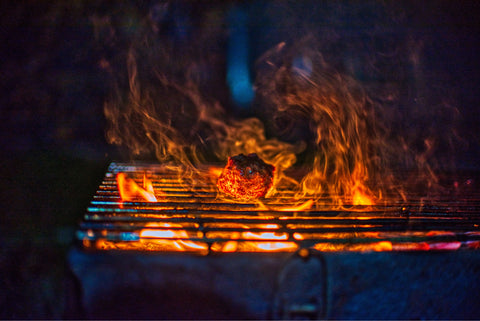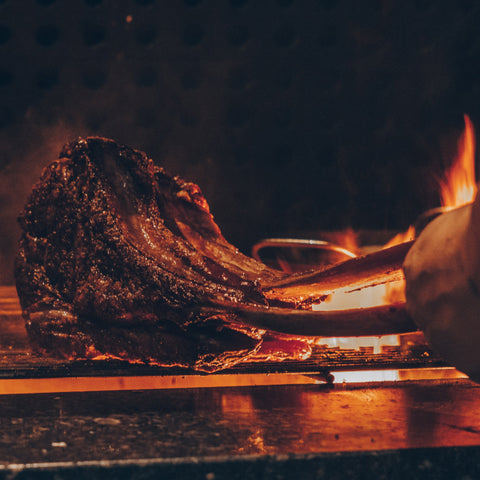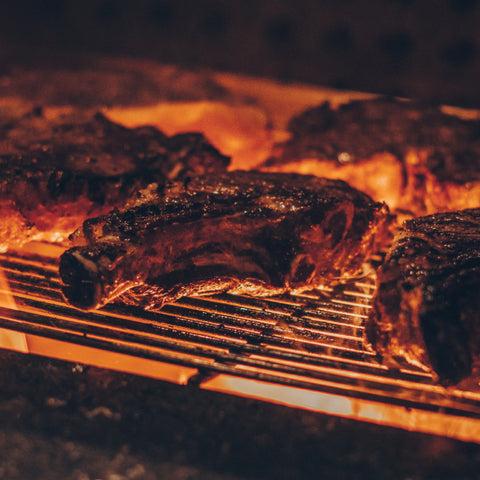The Science of Grilling – where cooking meets Science

Grilling at its best is nothing short of magic. Whether it's a juicy steak or a perfectly grilled vegetable skewer, the flavours and aromas of grilled food are hard to resist. But did you know that there is also a fair bit of science going on inside the grill? Understanding the scientific principles behind grilling can help you become a better griller and take your culinary skills to a whole new level. In this blog post, we will explore the science of grilling and how it can help you master your grill even more.
The Maillard Reaction: The Magic Behind Grilled Food
One of the most important chemical reactions that occur during grilling is the Maillard reaction. This reaction happens when amino acids and reducing sugars are heated, leading to the formation of new flavour and aroma compounds. These compounds are responsible for the brown color of grilled meat and the rich flavours that we love. The Maillard reaction is also responsible for the crispy texture of grilled food. To enhance the Maillard reaction, it's essential to preheat your grill to a high temperature before cooking, and use dry heat to sear the meat.
The Role of Heat: Understanding How Heat Works
Heat is one of the most critical elements of grilling. It's essential to understand how heat works to cook food correctly. The heat from the grill causes the moisture in the food to evaporate, leading to the formation of a crispy crust. The heat also causes the proteins in the food to denature and coagulate, leading to the firm texture of grilled food. It's essential to control the temperature of your grill to avoid overcooking or undercooking your food. You can do this by adjusting the vents on your grill, using a thermometer, or moving the food to different parts of the grill.
 Resting and Carryover Cooking: Two Essential Concepts in Grilling
Resting and Carryover Cooking: Two Essential Concepts in Grilling
Resting and carryover cooking are two essential concepts in grilling. Resting refers to the process of letting the grilled food sit for a few minutes before serving. This allows the juices in the food to redistribute, leading to a more tender and flavourful dish. Carryover cooking, on the other hand, refers to the extra cooking that occurs after the food is removed from the grill. This happens because the heat from the surface of the food continues to penetrate the interior, leading to further cooking. It's essential to factor in carryover cooking when grilling to avoid overcooking your food.
The Science of Timing: When to Grill and When to Rest
Timing is everything when it comes to grilling. Knowing when to start grilling, how long to cook the food, and when to remove it from the grill are all crucial to achieving the perfect grilled dish. For example, it's best to start grilling when the coals or burners are at their hottest, which usually happens 30-45 minutes after lighting the grill. It's also important to let the meat rest for a few minutes before cutting into it to allow the juices to redistribute and ensure a tender and juicy result.
The Science of Smoke: Adding Flavour to Your Grilled Dishes
Smoke is an essential element in grilling, adding a distinct flavour and aroma to the food. The smoke comes from the wood or charcoal used in the grill and can be manipulated to achieve different flavours. For example, using hardwoods like hickory or mesquite can give a smoky flavour to the food, while using fruitwoods like apple or cherry can add a sweeter, fruitier flavour. It's also essential to control the amount of smoke by adjusting the air vents on the grill.
Conclusion: The Science of Grilling Can Help You Become a Master Griller
Grilling is more than just cooking food over an open flame or hot coals. It's a science that involves understanding the chemical reactions and heat transfer that occur during grilling. By mastering the science of grilling, you can enhance the flavours and textures of your grilled dishes. From understanding the Maillard reaction to controlling the heat and smoke, there are many scientific principles at play in every grilled dish. So, the next time you fire up your grill, remember to apply the science of grilling to make your dishes even better.



Share:
The Best Way to cook a T-bone steak
From Charcoal to Community: Tracing the Origins of Barbecue Culture